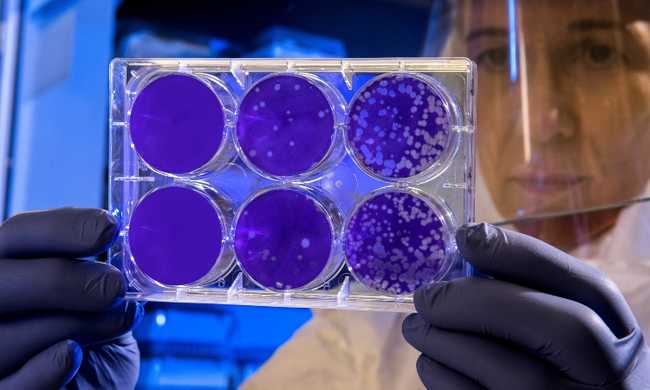What are the benefits of eating fruit?
Fruits contain fiber, nutrients, vitamins and beneficial compounds, but some people need to avoid them. Understand

Edited and resized image by Miguel Maldonado, available on Unsplash
Eating more fruits and vegetables is perhaps the most common health recommendation in the world, after all, these foods are often free of harmful processing and additives such as some types of preservatives. Some people call the fruit "fast food of nature" because they are very easy to consume. However, some fruits are relatively high in sugar compared to other whole foods. For this reason, you may wonder if they are really healthy. Understand:
- Preservatives: what are they, what types and dangers
- What are fresh, processed and ultra-processed foods
Too much sugar is bad, but it depends.
Much evidence shows that excessive intake of processed sugar is harmful. This includes table sugar (sucrose) and corn syrup, with a high content of fructose and glucose, types of sugar (see studies about it here: 1, 2, 3).
- Corn and fructose syrup: tasty but careful
- Six natural sweetener options without synthetic sweetener
- Is sugar the new tobacco?
- Demerara sugar: what it is and its benefits
- Coconut Sugar: Good Guy or More of the Same?
One reason excessive intake of processed sugar is harmful is the negative metabolic effects of fructose when consumed in large amounts. Many people believe that just as excessively processed sugars are bad, so are fruits, which also contain fructose, a type of sugar. However, this is not true. Fructose is harmful only in large amounts and it is difficult to obtain excessive amounts of fructose from fruits.
They are rich in fiber and water
When eating whole fruit, it is almost impossible to get enough fructose to cause harm. Fruits are loaded with fiber, water and have significant resistance to chewing.
For this reason, most fruits take time to be eaten and digested, which means that fructose arrives in the liver slowly. In addition, fruits provide satiety. Most people feel satisfied after eating a large apple, which contains 23 grams of sugar, 13 of which is fructose (see study on this: 4).
- What is dietary fiber and its benefits?
- Fiber-rich foods fight diabetes and high cholesterol
In comparison, a 500 ml bottle of Coca-Cola, which contains 52 grams of sugar (of which 30 is fructose), has no nutritional value (see study about it here: 5).
A single apple provides greater satiety, decreasing the urge to feel full and less inclined to eat more food. On the other hand, a soda bottle has a satiety (see study about it here: 6)
When fructose reaches the liver quickly and in large amounts, as with soda ingestion, it can have adverse health effects over time.
However, when fructose reaches the liver slowly and in small amounts, as in fruit ingestion, the body is able to efficiently metabolize fructose. While eating large amounts of processed sugar is harmful for most people, the same is not true of eating fruit.
Contains vitamins, minerals and antioxidants
Fruits are not just bags of fructose. They contain fiber, vitamins and minerals, plus a multitude of antioxidants and other beneficial plant compounds.
- Anthocyanin present in red fruits brings benefits
- Antioxidants: what are they and in what foods to find them
Fiber, especially soluble fiber, has many benefits, including reduced cholesterol levels, slow carbohydrate absorption, and increased satiety. In addition, studies have shown that soluble fiber can help you lose weight (see studies about it here: 7, 8, 9 ,10)
- Does altered cholesterol have symptoms? Know what it is and how to prevent it
- What is Cranberry and its Benefits
- What is blueberry and its benefits
Fruits tend to be rich in various vitamins and minerals such as vitamin C, potassium and folate. However, there are hundreds of different edible fruits found in nature, and their nutritional compositions can vary widely.
So if you want to maximize the health benefits of fruits, focus on those that are rich in nutrients. Fruits with more skin like blackcurrants, cranberries, and blueberries are rich in antioxidants and fiber.
Most studies show health benefits
Several observational studies have shown that people who eat more fruits and vegetables have a lower risk of developing disease. A review of nine studies found that each daily serving of fruit reduced the risk of developing heart disease by 7%.
Another study, which included 9,665 adults, found that a high intake of fruits and vegetables was associated with a 46% lower risk of diabetes in women, but there was no difference between men.
- Diabetes: what it is, types and symptoms
- Natural Remedies Help Diabetes Treatment
In addition, a study that looked at fruits and vegetables separately found that vegetables were associated with a reduced risk of breast cancer, but this did not apply to fruits.
Other studies have shown that eating fruits and vegetables is associated with a lower risk of heart attack and stroke - the two leading causes of death in Western countries (see studies on this here: 11, 12).
A study that looked at how different types of fruit influence the risk of developing type diabetes found that people who ate the most grapes, apples and blueberries had the lowest risk, with blueberries having the strongest effect.
- Blueberry: what is it and benefits
However, one problem with observational studies is that they cannot prove that the associations they detect are direct causal relationships. People who eat more fruit tend to be more health conscious, less likely to smoke, and more likely to exercise. Some randomized clinical trials (real human experiments) have shown that increasing fruit intake can lower blood pressure, reduce oxidative stress, and improve glycemic control in diabetics (see studies on this: 13, 14).
- What is the Glycemic Index?
Eating Fruit Can Help You Lose Weight
Due to the fiber and water content of fruits and the chewing required to eat them, eating fruits provides a lot of satiety.
Apples and oranges are among the foods with the highest levels of satiety, even more than meat and eggs, according to the study.
This means that if you increase your intake of apples or oranges, you will likely feel full and eat less other foods. There is also an interesting study that demonstrates how fruits can contribute to weight loss. In this six-month study, nine men were on a diet consisting only of fruits (82% calories) and oilseeds (18% calories).
- Discover the benefits of the apple
- 12 benefits of apple cider vinegar and how to use it
- Benefits of whole orange and orange juice
- Learn about the benefits of oilseeds
Not surprisingly, these men lost significant amounts of weight. Those who were obese lost even more than those who were at a healthy weight.
when to avoid them
Even though fruits are healthy for most people, there are some reasons why some people need to avoid them. One of them is intolerance. Eating fruits can cause digestive symptoms in people with intolerance to FODMAPs (certain carbohydrates found in food), for example.
Fruit juice should be consumed in moderation
Many of the fruit juices sold in the markets are not "real" fruit juices. They consist of water mixed with some form of concentrate and processed sugar.
But even if you get 100% real fruit juice, keep your intake moderate. There is too much sugar in fruit juice and too little fiber, which would serve to keep blood sugar levels from going up sharply.
Adapted from Kris Gunnars, Science Direct, PubMed and Nutrition Data










